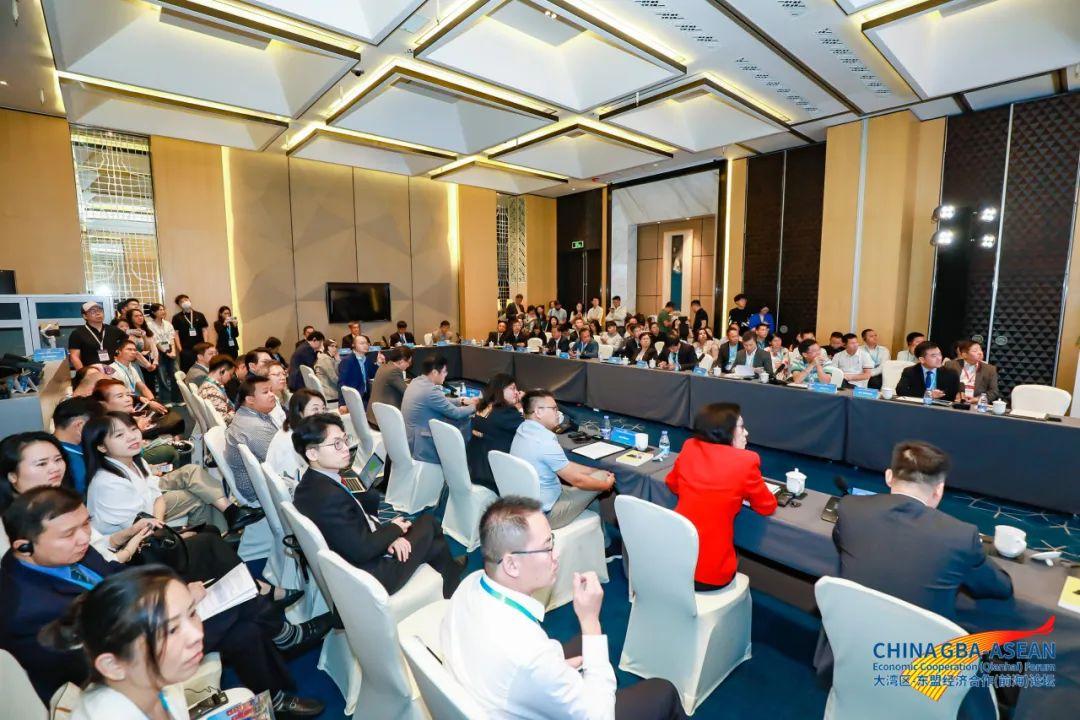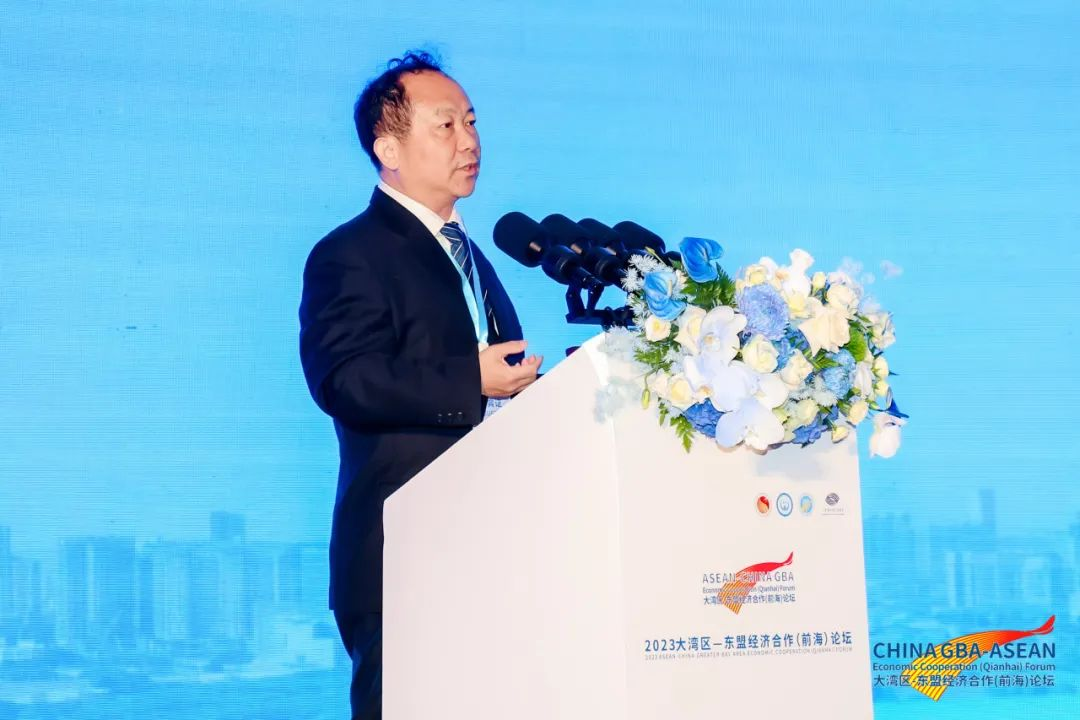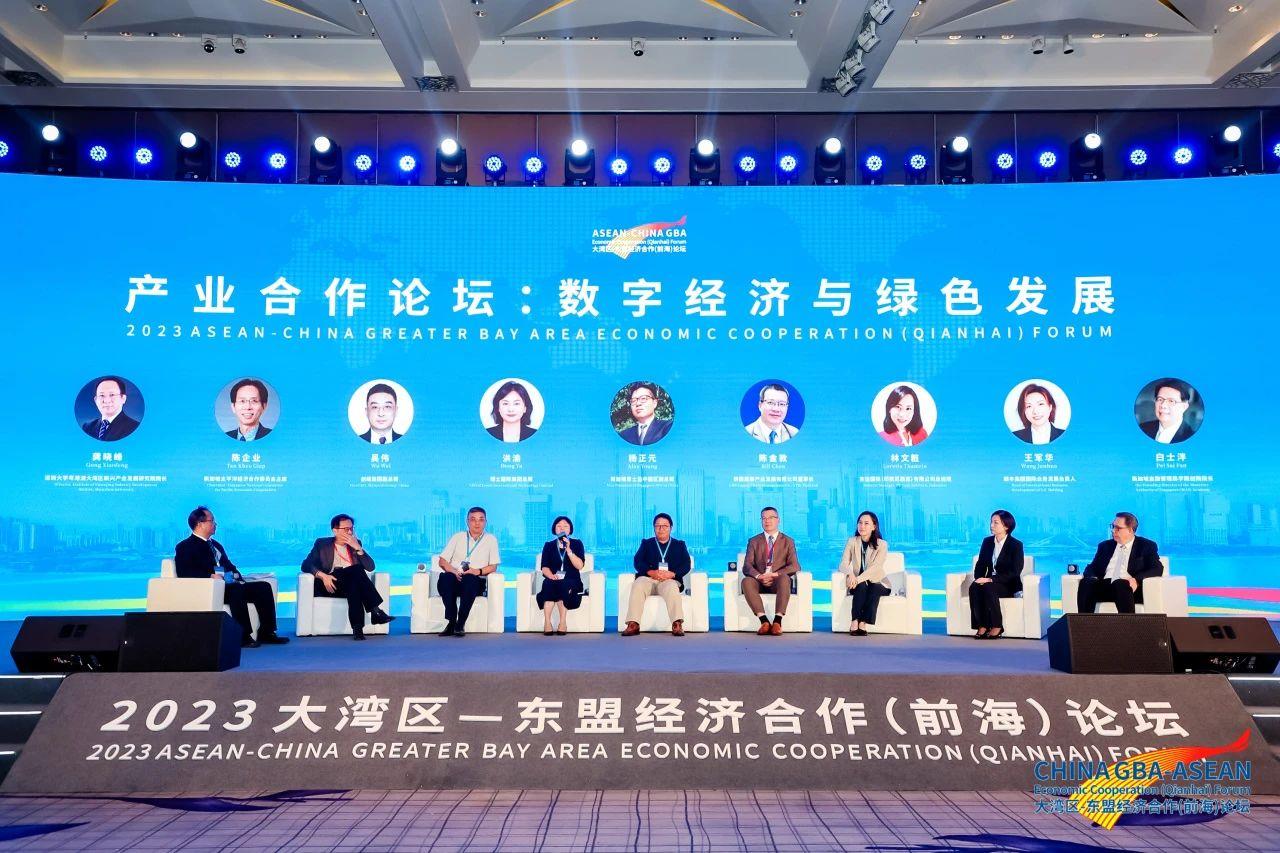“Public Policy” Discipline Direction
“Public Policy” is a key direction in the construction of the discipline of public administration at the School of Government, Shenzhen University. Supported by Shenzhen University’s Center for ASEAN-Greater Bay Area Studies, and Institute of Emerging Industries in Guangdong-Hong Kong-Macao Greater Bay Area, it focuses on such research fields as public policy analysis, emerging industries and innovation policies, fiscal and tax policies, etc.
Introduction to the Research on International Industrial Cooperation
China and ASEAN have become each other’s largest trading partner. On November 22, 2021, Chinese President Xi Jinping officially announced the establishment of a comprehensive strategic partnership between China and ASEAN to build a closer China-ASEAN community of shared future. To enhance Shenzhen University’s ability to serve the Guangdong-Hong Kong-Macao Greater Bay Area and the country’s external strategy, in August 2021, Shenzhen University officially established the Shenzhen University’s Center for ASEAN-Greater Bay Area Studies on the basis of the first professional institute for Singapore studies in China. The Studies Center focuses on academic research in the areas of economy, politics, science and technology, and trade between the Greater Bay Area and ASEAN countries, as well as practical research in the areas of international relations, government dialogue, and industrial and technological cooperation between the Greater Bay Area and ASEAN countries. The Studies Center was approved as “Shenzhen Key Research Base for Humanities and Social Sciences” in December 2021, and Shenzhen University is committed to building the Studies Center into a national high-end think tank serving the Guangdong-Hong Kong-Macao Greater Bay Area and China’s external strategy.
Opening of the Forum
2023 ASEAN-China Greater Bay Area Economic Cooperation (Qianhai) Forum was held in Qianhai, Shenzhen on July 29-30, bringing together government officials from ASEAN countries including China, the Philippines, Malaysia, Indonesia, Myanmar, Singapore, Thailand, Laos, Brunei and Cambodia, and leaders from major cities and regions in the Greater Bay Area, including Shenzhen, Dongguan, Foshan, Huizhou, Zhongshan and Zhaoqing, as well as representatives of the Chinese chambers of commerce, think tanks and outstanding local enterprises based in ASEAN countries, who had discussions around the theme of “Science, Technology and Industrial Cooperation under the China-ASEAN Comprehensive Strategic Partnership” to seek cooperation. The forum was co-hosted by ASEAN-China Centre, Shenzhen Qianhai Shenzhen-Hong Kong Modern Service Industry Cooperation Zone Administration, Shenzhen University’s Center for ASEAN-Greater Bay Area Studies, and Guangdong High-tech Industry Chamber. The forum was covered by a number of media including Xinhua News Agency, Nanfang Media, Shenzhen TV, Phoenix News and 21stCentury Business Herald.

The opening ceremony of the forum was presided over by Huang Xiaopeng, Executive Deputy Director of Qianhai Administration. Shi Zhongjun, Secretary General of ASEAN-China Centre, and Wang Shourui, Deputy Mayor of Shenzhen Municipal Government, delivered speeches to warmly welcom the guests from all over the world and express high expectations for the economic cooperation between the Greater Bay Area and ASEAN. Chang Lih Kang, Minister of Science, Technology and Innovation of Malaysia, Arthayudh, Ambassador of Thailand to China, Rahmani, Ambassador of Brunei to China, Nurul, Deputy Minister of Investment Promotion of Indonesia, Nyunt Aung, Deputy Minister of Commerce of Myanmar, and Rodolfo, Deputy Secretary of Trade and Industry of the Philippines, delivered keynote speeches respectively, hoping that through this event, they could better promote high-quality and sustainable industrial cooperation between the Greater Bay Area and ASEAN countries, achieving mutual complementarity and common prosperity.
After the opening ceremony, the forum held a launch ceremony, in which Low Kian Chuan, President of the Associated Chinese Chambers of Commerce and Industry of Malaysia,Luo Wanwei, President of the Philippine Association for Chinese Studies, andHuang Dexin, Chairman of GRC Building Materials Group Corporation of Indonesia, spoke as representatives of ASEAN chambers of commerce, think tanks and enterprises respectively. Meanwhile, the forum held an inauguration ceremony of the China (Greater Bay Area)-ASEAN Alliance of International Chambers of Commerce and an inauguration ceremony of the China-ASEAN Think Tank Partnership, and released the Greater Bay Area-ASEAN Economic Cooperation Initiative, proposing to build a dialogue platform for economic cooperation, deepen industrial and investment cooperation, promote cooperation in scientific and technological innovation and transformation of technological achievements, strengthen exchanges and cooperation among chambers of commerce in the region, and encourage personnel and cultural exchanges within the region.
Sub-Forum I: Regional Cooperation Forum
In the afternoon of July 29, the forum held a regional cooperation forum with the theme of “Greater Bay Area-ASEAN Economic Cooperation”. Chaired by Jin Xu, President of the China Association of International Trade, the sub-forum brought together government leaders of ASEAN countries, government leaders of cities in the Greater Bay Area, and representatives of enterprises and chambers of commerce to hold high-level dialogues and discuss key issues in the development of regional economic cooperation between the Greater Bay Area and ASEAN. At the meeting, Chang Lih Kang, Minister of Science, Technology and Innovation of Malaysia, Thein Lin, Deputy Director General of Trade Promotion Organization of Ministry of Commerce of Myanmar, Wang Shourui, Deputy Mayor of Shenzhen Municipal Government, Ye Hongguang, Standing Committee Member/Deputy Mayor of Zhongshan Municipal Party Committee, Li Junling, Deputy Mayor of Huizhou Municipal Government, and Qian Zhong, Deputy Secretary General of Foshan Municipal Government, introduced the economic foundation, industrial development and investment and business environment of their respective country and city, showcasing the solid foundation and broad prospects of cooperation between the Greater Bay Area and ASEAN, and cordially invited the entrepreneurs present at the meeting to invest in local projects, carry out cooperation and exchanges and share development opportunities. During the free exchange session, representatives of enterprises andchambers of commerce actively asked questions on topics such as the direction and opportunities of future investment cooperation in Malaysia, the environmental security of investment in Myanmar, and the integrated development of Huizhou and Shenzhen. Leaders of various countries and cities gave satisfactory answers to the questions based on the key areas and directions of the future development of each region.
The sub-forum effectively promoted exchanges between leaders of ASEAN countries and leaders of major cities and regions in the Greater Bay Area, as well as dialogues between representatives of enterprises, chambers of commerce and politicians, laying a more solid foundation for further deepening cooperation between the Greater Bay Area and ASEAN countries.
Sub-Forum II: Think Tank Cooperation Forum
During the same period, experts and scholars from think tanks, studies centers, colleges and universities in China, Indonesia, Singapore and other countries gathered together to make wonderful speeches on the theme of “Think Tank Cooperation and Comprehensive Strategic Partnership”, and jointly explore the significance of think tank cooperation in promoting regional economic cooperation and win-win development.
The sub-forum was chaired by Koh King Kee, President of the Centre for New Inclusive Asia in Malaysia. Wang Yongcheng, Vice President of Shenzhen University, delivered a speech first, then followed by wonderful reports given by Fan Daqi, Vice President of Academy of Contemporary China and World Studies; Bouadam Sengkhamkhoutlavong, Director of Asia Research Center at National University of Laos; Lei Xiaohua, Deputy Director of Institute of Southeast Asian Studies, Guangxi Academy of Social Sciences; Kin Phea, Director of International Relations Institute of Cambodia; Luo Chuanyu, Vice President of China-ASEAN Research Institute, Guangxi University;Raeden, Executive Director of Myanmar Center for Strategic and International Studies; Li Tao, Deputy Dean of Regional Country Research, Institute of International Relations, Yunnan University;Noor Hasharina Hassan, Centre for Asian Studies, Universiti Brunei Darussalam; Lyu Yuanli, Director of the Center for ASEAN-Greater Bay Area Studies, Shenzhen University; Feng Dedong, Director of Mekong Development Studies Center; Tian Shichen, President of Global Governance Institution,Luo Wanwei, President of the Philippine Association for Chinese Studies; Wang Yuzhu, Director of APEC and East Asia Cooperation Center, Chinese Academy of Social Sciences; Tan Khee Giap, Director of Pacific Economic Cooperation Council of Singapore; Veronika Sintha Saraswati, Senior Researcher of Centre for Strategic and International Studies of Indonesia; Zhang Yun, Director of Institute of Southeast Asian Studies, Jinan University; Wirun Phichaiwongphakdee, Director of the Thailand-China Research Center of the Belt and Road Initiative; and Koh King Kee, President of Centre for New Inclusive Asia.

Professor Wang Yongcheng, Vice President of Shenzhen University, on behalf of the organizing committee, awarded a commemorative plaque to the Centre for New Inclusive Asia

Professor Lyu Yuanli, Director of the Center for ASEAN-Greater Bay Area Studies, Shenzhen University, delivered a speech
Under the changing international situation, think tank cooperation and comprehensive strategic partnership are of great significance to both international cooperation and global development. Experts and scholars agree that think tanks, as an important force for policy research, play a role as a bridge and bond in regional cooperation. Cooperation and exchanges between think tanks will help enhance mutual understanding and trust, and push the comprehensive strategic partnership to a deeper level. In addition, think tank cooperation can help tap the competitive resources of various countries and realize the complementarity of multi-party cooperation. Cooperation on cross-border issues can promote regional economic integration and prosperity. In the future, in addition to establishing friendly cooperation in traditional fields such as economy and trade, think tanks from China and ASEAN will further explore new cooperation possibilities in strategic emerging industries such as digital economy, big data, artificial intelligence, new energy and biomedicine. In the end, Wang Yongcheng, Vice President of Shenzhen University, and Koh King Kee, President of Centre for New Inclusive Asia, jointly awarded a commemorative plaque to the representatives of think tanks of various countries.

Through this sub-forum, the attendeescontributed wisdom and strength to jointly building a new model of think tank cooperation featuring openness, inclusiveness, cooperation and innovation, and pushing Greater Bay Area-ASEAN economic cooperation to a new height.
Sub-Forum III: Industrial Cooperation Forum
The third sub-forum, with the theme of “Digital Economy and Green Development”, focused on industrial cooperation. It was chaired by Gong Xiaofeng, Dean of Institute of Emerging Industries in Guangdong-Hong Kong-Macao Greater Bay Area, Shenzhen University. Outstanding experts and business representatives from all over the world shared their views respectively.

Professor Gong Xiaofeng, Dean of Institute of Emerging Industries in Guangdong-Hong Kong-Macao Greater Bay Area, Shenzhen University, chaired the sub-forum
At the meeting, Tan Khee Giap, Director of Pacific Economic Cooperation Council of Singapore, Wu Wei, Vice President of Skyworth Group, Hong Yu, President of Leoch International Group, Yang Zhengyuan, Vice President of NCS China, Chen Jindun, Chairman of Thailand Jitai Industrial Development Co., Ltd., Lin Wenzhuang, General Manager of PT CAIH Infotech Indonesia, Wang Junhua, Head of International Business Development of SF Express Group, and Bai Shipan, Founding President of MAS Authority, focused on deepening industrial cooperation between digital economy and green economy by introducing the construction of countries or enterprises in the fields of digitalization, green development and sustainable development, and discussing topics such as promoting the innovative application of digital technology. In the context of surging demand for digital services and accelerating digital transformation in all walks of life, the representatives of entrepreneurs called for digital economy cooperation with a positive and open attitude to seek mutual benefit and win-win results in their speeches.
This sub-forum provides a good platform for outstanding business representatives from various countries to publicize corporate digitalization, digital technologies and green products, and is conducive to promoting high-quality and sustainable cooperation between enterprises in the Greater Bay Area and ASEAN countries on digital economy and green development.
Sub-Forum IV: Chamber of Commerce Presidents’ Forum
Chaired by Wang Lizong, President of Guangdong High-Tech Industry Chamber & Executive Director of Shenzhen University’s Center for ASEAN-Greater Bay Area Studies, the fourth sub-forum brought together more than ten presidents and directors of business associations from various countries to discuss the important role and responsibility of regional chambers of commerce in promoting economic cooperation and development under the theme of “Cooperation Mechanisms and Cooperation Projects”.
Fang Cancheng, Executive Vice President of Federation of Khmer Chinese in Cambodia,Huang Dexin, General Chairman of Indonesian Chinese Association,Zhou Minjian,Executive Vice President of Chinese General Chamber of Commerce in Laos, Tan Sri Dato’ Soh Thian Lai, President of Federation of Malaysian Manufacturers, U Aung Zayyar Lwin, General Secretary of Federation of Chambers of Commerce and Industry, LinWenmeng, President of Myanmar Chinese Chamber of Commerce,LinRonghui, Executive Vice President of Federation of Filipino Chinese Chambers of Commerce & Industry,Chen Zhanpeng, President of Singapore Manufacturers’ Federation,Lin Junran, Chairman of The Thai Chinese Exit Association,Lin Limi, President of Philippine Chamber of Commerce in China, Zhao Jinghua, Secretary General of Shenzhen International Chamber of Commerce, and Zou Shuji, Executive President of Greater Bay Area Import and Export Chamber of Commerce, gave wonderful speeches at the meeting.
The leaders fromchambers of commerce shared the development experience of their respective chambers and explored the key role of cooperation mechanisms and cooperation projects in promoting regional economic development. The guests agreed that the chamber of commerce, as a bridge connecting enterprises, should strengthen cooperation, jointly build a cooperation platform, and create a broader cooperation space for enterprises. In addition, by expanding cooperation mechanisms and cooperation projects, and promoting industrial chain cooperation and supply chain docking, it will help promote the economic growth and innovative development of enterprises in the region. In the digital era, seizing the development opportunities of the e-commerce market and building smart chambers of commerce with the aid of information technology are the keys to improving cooperation efficiency. The establishment of a digital platform can better promote information sharing and business docking among chambers of commerce, and further promote the construction of a global digital pilot area in the Greater Bay Area. At the meeting, the guests said that based on the sense of trust cultivated by economic and trade cooperation with China over the years, they are looking forward to cooperating with the Greater Bay Area in the future and exploring business opportunities in depth. The chamber of commerce has great potential in promoting policy alignment and cooperation projects in the region, which will further expand the scope of cooperation. Finally, President Wang Lizong presented commemorative plaques to the presents and directors of the chambers of commerce from ASEAN countries.
The sub-forum provided a rare platform for exchanges and cooperation among business chamber leaders from various countries. They discussed the importance of cooperation mechanisms and cooperation projects, and laid a solid foundation for further promoting Greater Bay Area-ASEAN economic cooperation.
On July 30, the forum also held the Greater Bay Area-ASEAN Industrial Cooperation Matchmaking Conference, the signing ceremony of economic cooperation projects between the Greater Bay Area and ASEAN countries, the free exchanges and docking activities by country, and the visit to Shenzhen Qianhai Cooperation Zone and Tencent Group, designed to help promote exchanges and cooperation between enterprises and institutions in the region and achieve mutual benefit and win-win results.
Edit: Chen Yihan
First Review and First Proofreading: Fu Yang
Second Review and Second Proofreading: Luo Wen’en
Third Review and Third Proofreading: Wu Haiyan

